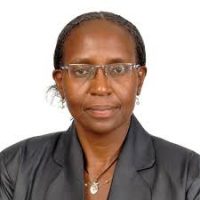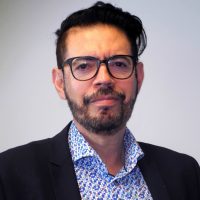
Elizabeth A. Bukusi MBChB, MMed, MPH, PhD, is a Chief Research Officer at the Kenya Medical Research Institute (KEMRI) , a Research Professor at the University of Washington (Departments of Obstetrics and Gynecology and Global health), an honorary lecturer at Aga Khan University in Nairobi (Department of Obstetrics and Gynecology), and volunteer clinical faculty at the University of California San Francisco (Department of Obstetrics, Gynecology & Reproductive Sciences). Dr. Bukusi’s primary areas of interest in research focus on sexually transmitted infections, reproductive health, and HIV prevention, care, and treatment. She serves as an at-large member of the IAPAC Board of Trustees.
- What and when was your first engagement with HIV/AIDS?
This was as a medical student in 1994 – the fear of HIV as in the air and my reaction then was to determine that fear of HIV would not make me shy away from the practice of medicine or in doing my best for any patient who needed my care. Those of us who were interested in surgical disciplines were re-thinking choices because of the fear of infection.
- What continues to motivate you about the HIV-related work you are engaged in today?
As a person privileged to have received training and having had mentors and funding invested in me, I need to make a difference to those who have no voice and no choices. Meeting a 16-year-old who is pregnant with her second child, living on a remote island, is HIV positive, and has a partner/ husband whose status is unknown and is unwilling to be tested is a stark reminder that there is much to be done to give hope and to allow “life” to be lived to the fullest for many who live in my part of the world.
- What is your advice for young people wishing to engage in HIV-related work?
This is important work as we are still not yet at the point where we can say “it is a done deal” and that HIV is a historical fact. The group that has the highest new infection rates are young people – young women in particular. They need to join the battle and bring in fresh ideas for what will work for their generation to make prevention, treatment, and reduction of stigma a reality.
- What is something most people do not know about you?
That I hold a record for leading the highest number of people in one team to have reached the third highest peak of Mt Kenya, the second highest mountain in Africa, to Point Lenana the third highest peak of the mountain – a total of 75 set out and 72 made it to the peak. It was my top management team of the research and HIV care treatment programs. An excellent team building opportunity.
- Who are your mentors or real-life heroes?
My mentors include Dr. King Holmes (University of Seattle, WA, USA), who taught me that you can only be as great as your mentee; Craig Cohen (affiliation, city, state, country), with whom I have a peer mentoring relationship now going to 25 years; Dr Jean Kagia, a Kenyan OB-GYN who leads by example; and my late mother, Edwina Muga, who taught and instilled in me the unshakable that nothing is impossible – that faith is real and works.
- If you could have dinner with one living or non-living person, who would it be and why?
If I was to have dinner with one person it would be my late grandmother, Beldina Owiti – a strong woman of faith who taught me that everyone is important, everyone has a story that should be listened to, and that tenacity and resilience trumps over the seeming impossibility of face of adversity that I may find today.
- In your opinion, what are the greatest achievements and failures of humanity?
The greatest achievement is in accepting and being celebrating of diversity – as every individual is a unique masterpiece. The greatest failure is in the worship of material wealth as the index of success – we all have a limited time span on Earth and even the richest dead man will eventually die.
- What is your prediction as to the future of our planet one full decade from the present day?
If we do not pay heed to the common impact we make through our choices individually and collectively on the place we call home – the planet Earth – and take steps to change our course, we will all pay the cost to our ultimate detriment.
More Member Profiles

Jorge Saavedra, MD, MPH
Jorge Saavedra, MD, MPH, is Executive Director of the AHF Global Health Institute housed within the University of Miami, FL, USA. Prior to this position,…
View More





